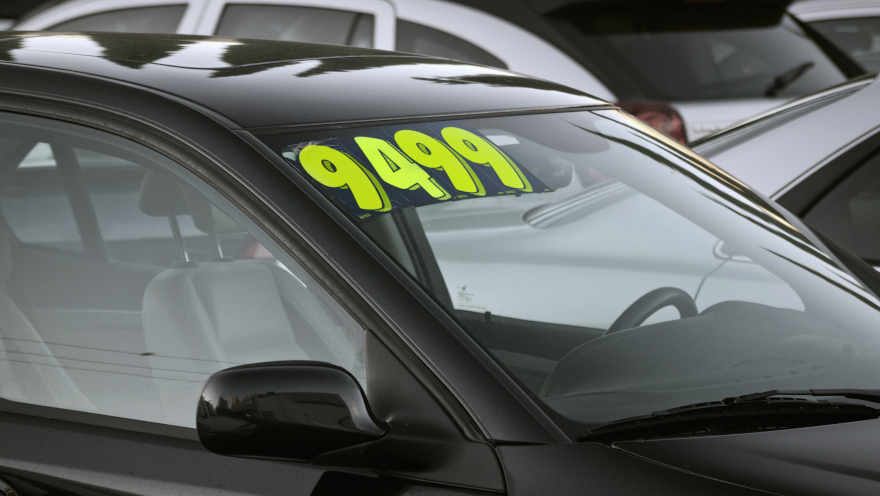Part I: How COVID-19 is impacting used-car market

By subscribing, you agree to receive communications from Auto Remarketing and our partners in accordance with our Privacy Policy. We may share your information with select partners and sponsors who may contact you about their products and services. You may unsubscribe at any time.
CARY, N.C. –
The COVID-19 pandemic is already impacting the used-vehicle retail market, with sales for March — usually the year’s strongest month for pre-owned — expected to fall dramatically.
And some expect full-year used-car sales could be 9% to 34% lower than original projections, depending on how the crisis plays out.
At Edmunds, analysts are forecasting 2.5 million used-vehicle sales this month, which would be down 34.2% year-over-year. That would put the first-quarter sum at 9.2 million, a 12.4% decrease.
“March is typically the strongest month for used-car sales with the traditional logic being that tax refunds help spur used sales, but with stay-at-home orders and delayed tax payment due date, this will redistribute the peak selling month's sales across the next few months,” Edmunds senior manager of insights Ivan Drury said in emailed comments to Auto Remarketing.
Over at TrueCar subsidiary ALG, analysts have updated their 2020 forecast based on the pandemic and subsequent economic outlook conditions.
The company outlines three scenarios for new-vehicle sales, as listed in a news release:
Subscribe to Auto Remarketing to stay informed and stay ahead.
By subscribing, you agree to receive communications from Auto Remarketing and our partners in accordance with our Privacy Policy. We may share your information with select partners and sponsors who may contact you about their products and services. You may unsubscribe at any time.
15.3M (Optimistic):
- Movement restrictions lifted May 1
- Stimulus packages deployed and having a positive impact
13.2M (Mixed):
- Multiple social distancing periods limit out of home activity
- Stimulus packages deployed and having a positive impact
- Supply disruption due to production stoppages
11.2M (Cautious):
- Ongoing social distancing and limited out of home activity through summer
- Prolonged downturn, limited success of stimulus packages
- Increased unemployment throughout 2020
ALG also emphasized the following in a note:
All scenarios are absent severe impacts and “speculative pessimism” from:
- Widespread supply chain or vehicle production disruption
- Prolonged social distancing beyond 6 months
- Prolonged closure of auto dealerships beyond 45-60 days
- Stimulus packages delayed or ineffective
- Significant and sustained declines in macro-economic fundamentals (demand)
Auto Remarketing reached out to ALG to see how those scenarios would play out in the used-vehicle market.
ALG’s initial forecast was for 40.9 million used-vehicle sales this year. Should Scenario 1 (optimistic) play out, the company is projecting 37.0 million used-car sales, which is 9% lower than the initial forecast.
If Scenario 2 (mixed) happens, ALG projects 31.9 million used-car sales (down 22% from initial forecast).
And if it’s Scenario 3 (cautious) that plays out, look for full-year used-car sales to come in at 27.1 million (down 34% from the initial forecast).
Going back to the new-car side, ALG chief industry analyst Eric Lyman said in a news release: “With the temporary closure of dealerships across the nation, continued declines in the stock market and ongoing uncertainty around the short/mid-term strategy to battle COVID-19, ALG expects further declines in our annual automotive sales forecast. While events continue to unfold daily, it seems the most likely outcome is vehicle sales landing in the mid 13 million range for 2020.
“A dependable personal automobile will continue to play a critical role in daily life. Even during ‘stay at home’ orders, vehicles will be used to get essential employees to work, deliver food, run critical errands and provide a safe transport in a time when public transportation is limited or unavailable,” he added.
ALG also emphasized that this downturn in car sales is likely just temporary.
“We cannot stress this enough, automotive sales will return,” ALG vice president of data science Morgan Hansen said in the release. “The aging U.S. vehicle fleet and growth of millennial market are underlying pillars of strength in mid to long-term auto sales.
“Natural replacement demand remains steady at roughly 15.5 million vehicles per year,” Hansen said. “Sales below this figure are not ‘lost’ but merely deferred until we see a return to our daily routine.”
And even amid the pandemic, many shoppers still say they will buy a new or used vehicle this year, according to Autolist.com.
The company polled 1,500 in-market shoppers from March 2-11 and from March 12-24.
The World Health Organization declared COVID-19 a pandemic on March 11.
As you might expect, economic concerns grew and interest in purchasing a car declined over the course of the surveys. However, many people still intend on buying a car this year, even after the pandemic declaration (albeit at a lower rate than prior).
More specifically, the proportion who said prior to March 11 that the coronavirus wouldn’t impact their buying decision was at 80%.
After the declaration, it was at 60%.
“There are two ways to look at that drop,” Autolist analyst Chase Disher said in a release. “The pessimist will see a definite slump in interest from car shoppers because of the coronavirus. But the optimist would point out that 60% is still a healthy amount of people hoping to buy a vehicle in 2020.”
And more people could be looking to go used amid an economic slowdown, which is typical.
Before March 11, 38% said the economy would lead them to buy used over new, according to Autolist. After March 11, it was 45%.
This is the first in a two-part series on the impact of COVID-19 on the used-car market. Part II can be found here.


